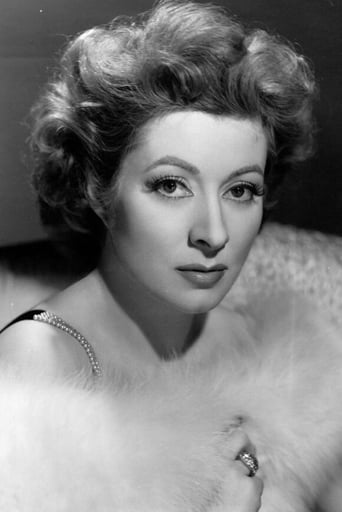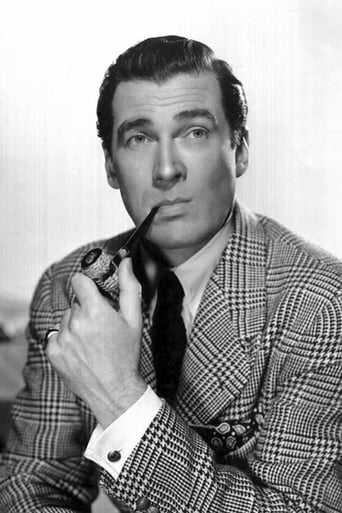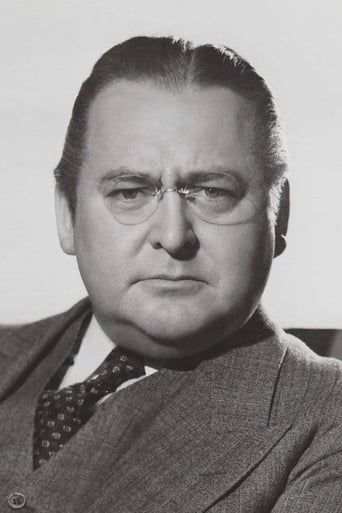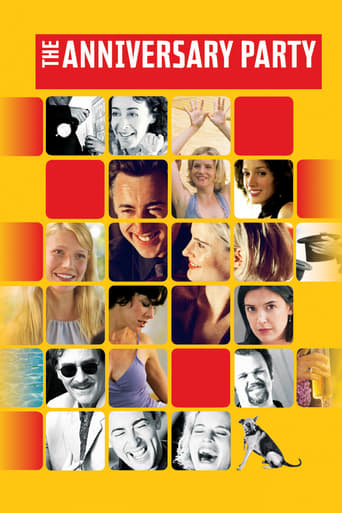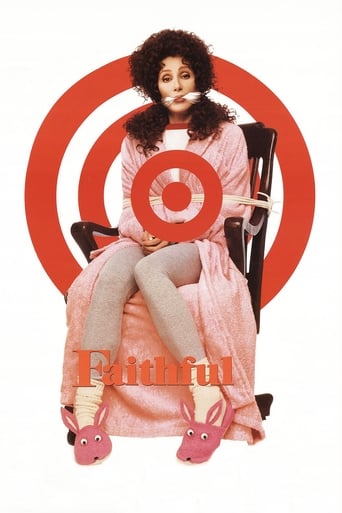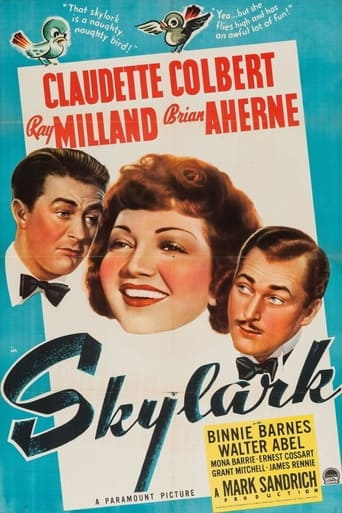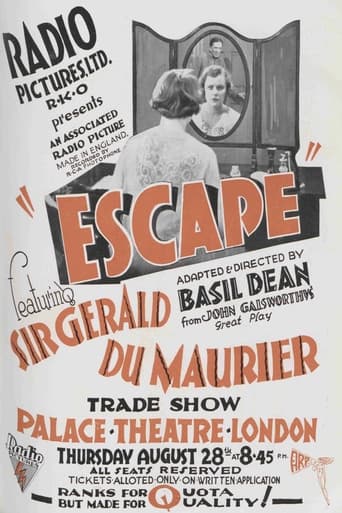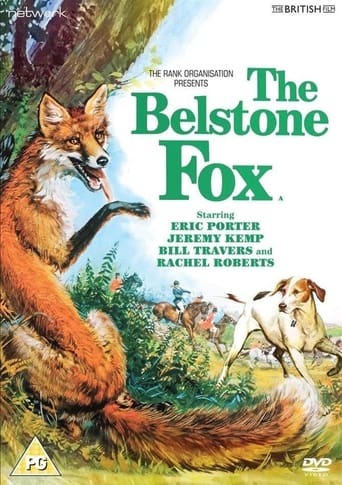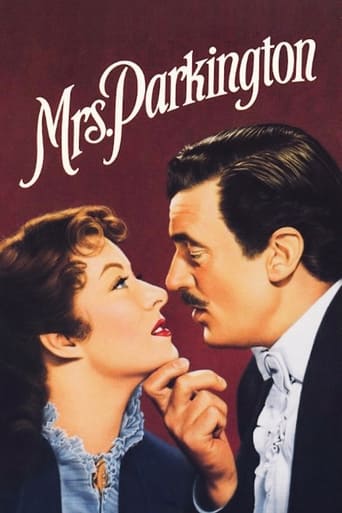
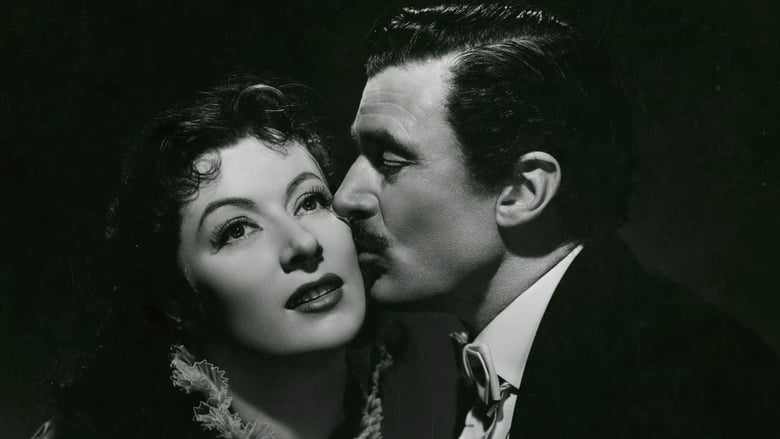
Mrs. Parkington (1944)
In this family saga, Mrs. Parkington recounts the story of her life, beginning as a hotel maid in frontier Nevada where she is swept off her feet by mine owner and financier Augustus Parkington. He moves them to New York, tries to remake her into a society woman, and establishes their home among the wealthiest of New York's high society. Family and social life is not always peaceful, however, and she guides us, in flashbacks, through the rises and falls of the Parkington family fortunes.
Watch Trailer
Cast


Similar titles
Reviews
Greer Garson lived to be 91 years old, and she never looked as she did as the older Mrs. Parkington and the older Madame Curie - all white.In this 1944 film, the Parkington family meets for Christmas, just before they all learn of a scandal which will impact the family fortune and the reputation of the family.Thinking about her husband, Susie (Greer Garson), the matriarch, now 84, thinks back to meeting her husband Gus (Walter Pidgeon) at her family boarding house in Leaping Frog, Nevada. The major, as he was called, owned the mine where everyone worked. Susie had always dreamed of being in high society, and she knew all about it and would fantasize about what it would be like. She gets her wish when, after the loss of her mother when the mine caves in, the Major and Susie marry and go to New York.There she meets Aspasia (Agnes Moorhead), the Major's former mistress, who takes Susie in hand and helps her to buy clothes and learn the ways of society. Susie and the Major have children and encounter tragedy and separation. With the Major gone now, Susie reflects on how best to handle this situation by asking herself what the Major would do.Really lovely film, with fine performances by Moorhead, Pidgeon, and of course, Garson. In the beginning she sports a black wig; I kind of missed, even in black and white, her flaming red hair. Strangely, Gladys Cooper plays Garson's daughter when Mrs. Parkington was 84. Cooper was 16 years older in reality. In those days, it was more economical for studios to use actresses under contract than borrow someone (though lending actors out was incredibly lucrative). Possibly Cooper was under contract and available. The film also features Edward Arnold, Dan Duryea, Lee Patrick, Tom Drake, Hugh Marlowe, Hans Conried, with Peter Lawford in a tiny role.Good movie.
Tay Garnett's resplendent black-and-white MS. PARKINGTON represents one of eight Garson-Pidgeon star-vehicles, it is a vintage family saga of our titular heroine Susie Parkington (Garson), a rich matron starts with a humble beginning as a chambermaid, when a mine explosion takes her mother's life away, out of guilt and admiration, Major Augustus Tarkington (Pidgeon) marries her and spirits her away to New York, so she can get a luxurious life a woman can ever dream of. She gets some advice to adopt the lifestyle of beau monde from a French aristocrat Baroness Aspasia Conti (Moorehead), who is also Major's confidant. And a new but tumultuous page of life opens and Susie gives her best shot to manage a perfect marriage with a dignitary and grows up to be an exemplar who knows and accomplishes a woman's true worth, heightened by a dramatic presentation of an inopportune situation when most of their dinner guests are in absentia for their fancy reception and bookended by a vignette in London involves Edward, Prince of Wales (Kellaway). These mentioned above actually are told through flashbacks by Susie, when she is an octogenarian and Augustus has long gone, during a Christmas gathering, she learns that her favourite great granddaughter Jane (Rafferty) decides to elope with a former employee of her father Amory (Arnold), and later finds out Amory is going to prison for fraud if he cannot pay a loan worth $31 million, which is equivalent to the entire inheritance for her offspring. It is drastically ironic that her progeny are abominable snobs (save Jane), since Susie is an excellent woman in all respects, but still, bad parenting cannot be dodged, through Gladys Cooper's portrait of her daughter Alice, a sheer ne'er-do-well and pain-in-the-neck. Or could it be a telling proof that the second/third-generation rich are really past hopes for integrity and humility? Since the film bifurcates into two alternate narratives with a time-span of over 60 years, it presents Garson a full-scale chance to act from adolescence to senility, although she is consistently pleasant to watch and impressively dignified in the latter period, her rigid posture can never pass off as a woman in her eighties no matter how much effort exerted from the make-up division. Yet, audience can easily side with her character because of what she represents - a wife with a perfect sense of propriety and a woman with sublime wisdom. As the film's title infers, co-star Pidgeon dutifully retreats to a second tier and downplays Major's volatility and vainglory.Garson is nominated with an Oscar and so is Ms. Moorehead, probably in her most opulent attire, her Aspasia is even much more laudable in handling the delicate issues of the rivalry among women or in a more literal sentence, how to co-exist with the wife of the man you love without hating each other's guts. Kellaway, Arnold and Birell (who plays Lady Nora Ebbsworth, a good sport in playing hostess) are all fittingly memorable, Garnett, a steady hand in orchestrating a character-driven centerpiece with grandeur and style, and so is Bronislau Kaper's mellow escorting score for a two-hour chronicle in the bygone era.
Greer Garson and Walter Pigeon were one of the great romantic teams of the 1940s but both were too old (particularly Pigeon) for their roles in this disappointing film version of the popular Louis Bromfield novel. Pigeon is simply miscast; he is too much the gentleman to ever be convincing as the boorish, philandering Major "Gus" Parkington. As his wife, Susie, Garson, wearing a dark wig (and looking rather like Yvonne DeCarlo), ages from a naive young woman to the crusty, 84 year old family matriarch. The characterization is never believable but her scenes as the elderly Mrs. Parkington are especially objectionable (she's too arch). Neither Garson or Pigeon is particularly well-aided by a meandering script that fails to adequately clarify the relationships among the family members or takes the time to develop the various characters. Consequently, one simply doesn't care what happens to the members of the Parkington dynasty. The supporting cast...among them, Edward Arnold, Lee Patrick, Dan Duryea, Cecil Kellaway, Frances Rafferty and Tom Drake...is competent but only Agnes Moorehead, in a rare sympathetic turn as Pigeon's ex-mistress, and Gladys Cooper, as Pigeon and Garson's dypsomaniacal daughter, manage to make a significant impression.
The best scene in the movie is when the recently married Greer Garson and Walter Pigeon are shopping. While Greer is looking at some flowers, she notices Walter's gaze has drifted off to some pretty young women. Without betraying any anger or sadness she says loudly, "Beautiful, aren't they?" With that double entendre, Greer's bitter acceptance of her husband's philandering and the never-ending hell she has created for herself by one bad decision is communicated to the audience instantly. Walter gives a quick look to Greer that shows he has been caught, but he doesn't apologize, showing the permanent rift between them. Great acting!


